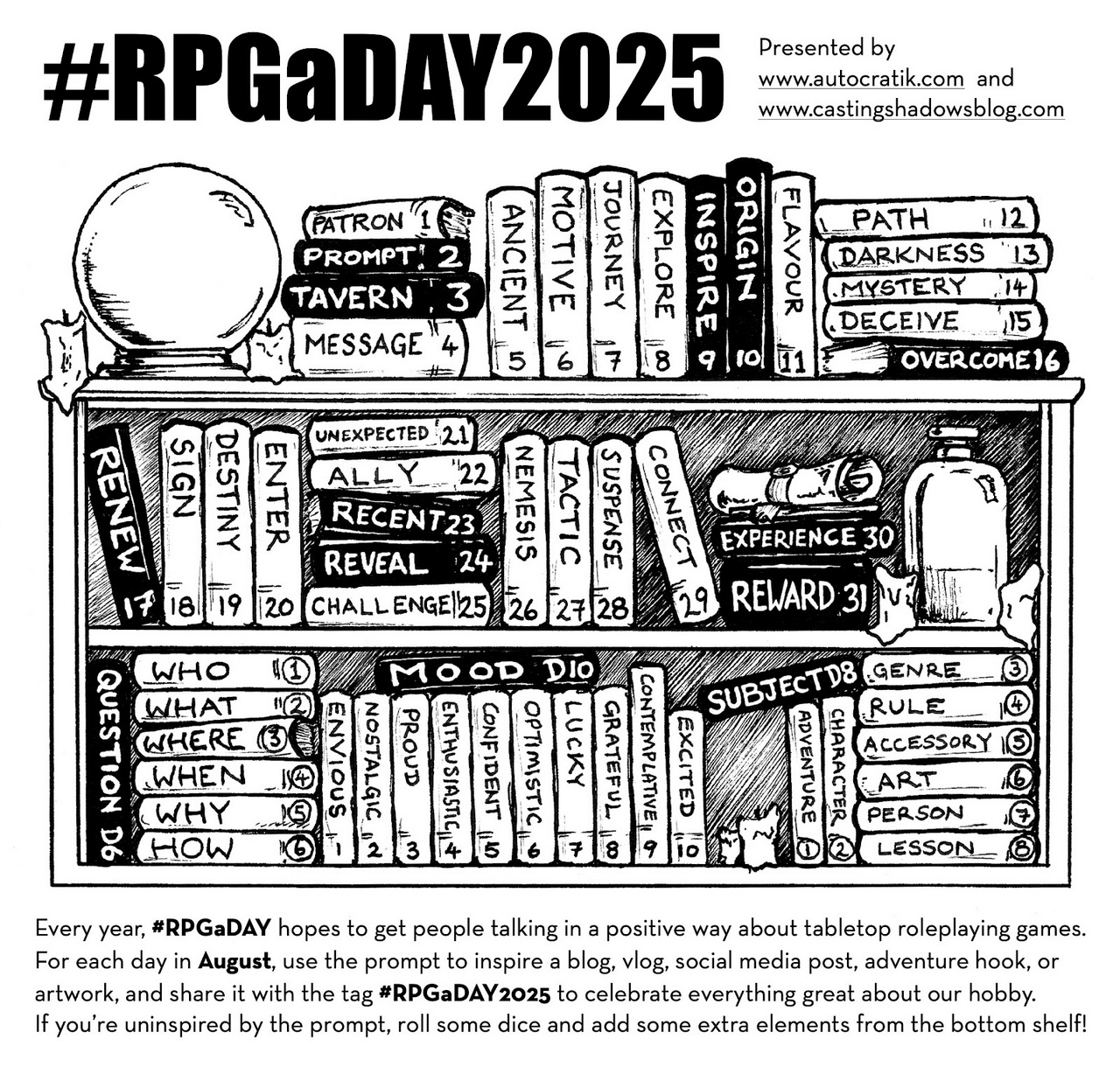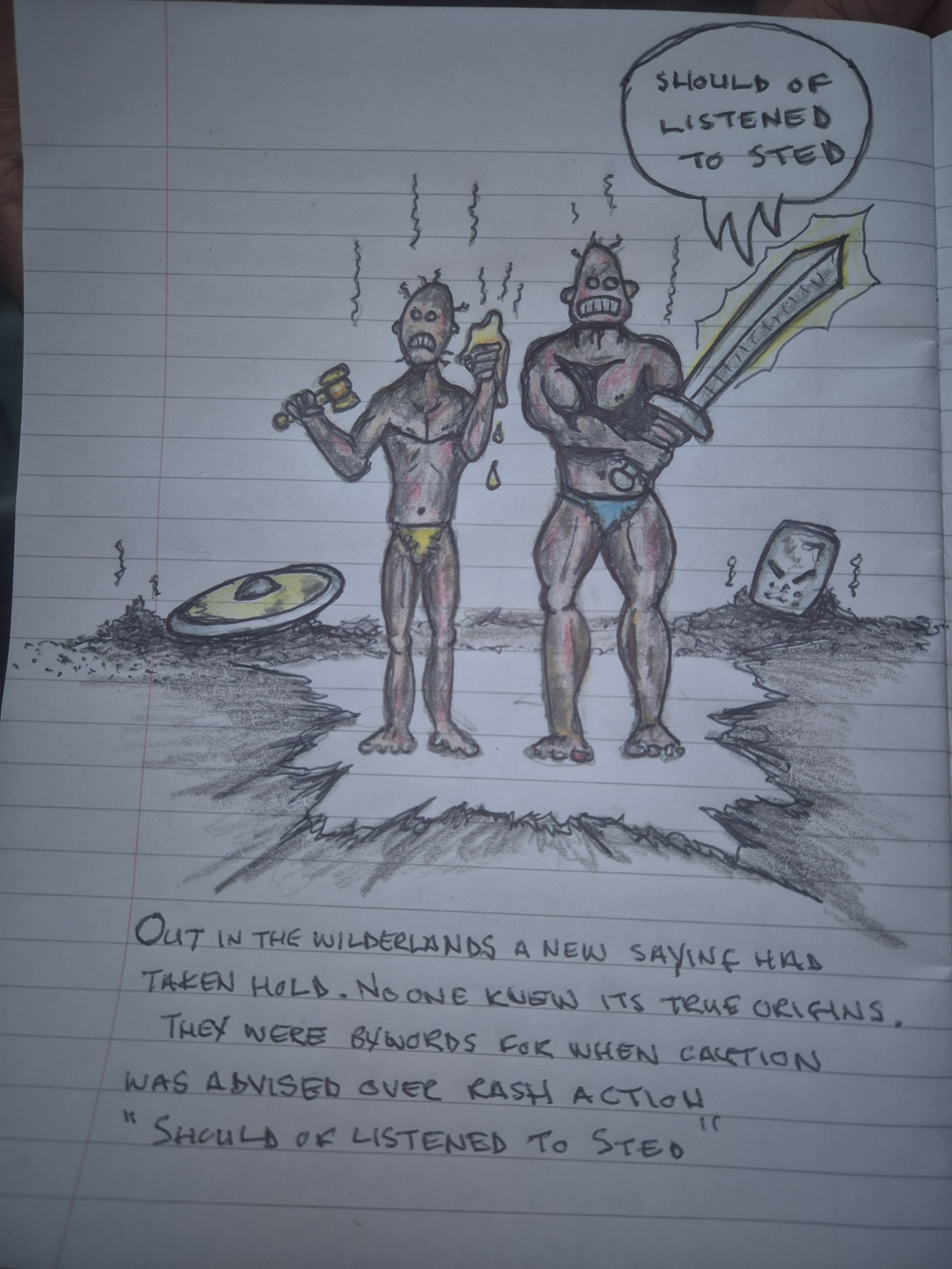Oh, one of the more exciting character reveals was the reigning Champion of hte Mightiest Supplex that Rhovar was about to challenge:
Rhovar trodden on his precious warhorse, Umber Fury, sporting his cloak and horned helmet, and carrying the Hydra Company banner in his muscular hand.
The outsides of the temple were swarming with people wanting to get in. They were all pushed away by the Windgod's clerics. The crowd separated and allowed Rhovar and his entourage to pass.
“Beat his ass blondy!” somebody yelled.
“Hah, another dead man ridding!” yelled another one.
“Brutus is the bae!” a woman screamed.
Wide stairs led to the sixty feet wide and thirty feet tall iron double doors. They were currently completely open, revealing a huge chamber bathed in sun.
“Challenger, I'm afraid you will have to dismount. We will take good care of your horse.”
...
The grand hall was a circular chamber with 300 wide diameter. Thick marble pillars, covered in motifs of eagles, winged men, and feats of strength, supported the ceiling. They were arranged around the full circumference of the chamber.
Sun illuminated the grand hall, coming down from a huge circular opening on the 30 feet tall ceiling. The eagle statue was in fact hollow. The sun would penetrate it's many orifices, and was somehow guided all the way down into the grand hall.
Looking up, the party could see many balconies on the inside. They were all full of people. The hall too, was jam-packed. Most of those present sported the Windgod insignia, but there were many others as well.
In the center of the hall was a 30 feet wide round ring. To be fair, it was more of a round plinth with colourful mosaic. The ring was warm to the touch. That was hardly surprising given that it was noon and burning hot. The sun rays seemed to be focused on it.
On the other side of the ring Rhovar spotted a man towering above all others.
The man was no freak giant. No, no. The man was perfect; as if Gods themselves made him. Tall, broad chested and shouldered, with elegant, elongated muscles. He moved with such grace that he was more akin to a panther than man. He stood perfectly naked, his dark framing the chiselled features of his face. His manly jaw revealed a heart-melting, pearly white smile.
A gaggle of women, and men!, surrounded him. He smiled at each, and was patient and gentle in his responses. At the same time a trio of acolytes were rubbing his naked body with oil, making sure to cover every inch of his copper skin.
“Our champion, I'm sure of it.”

 Illustration by Brulligrum.
Illustration by Brulligrum.